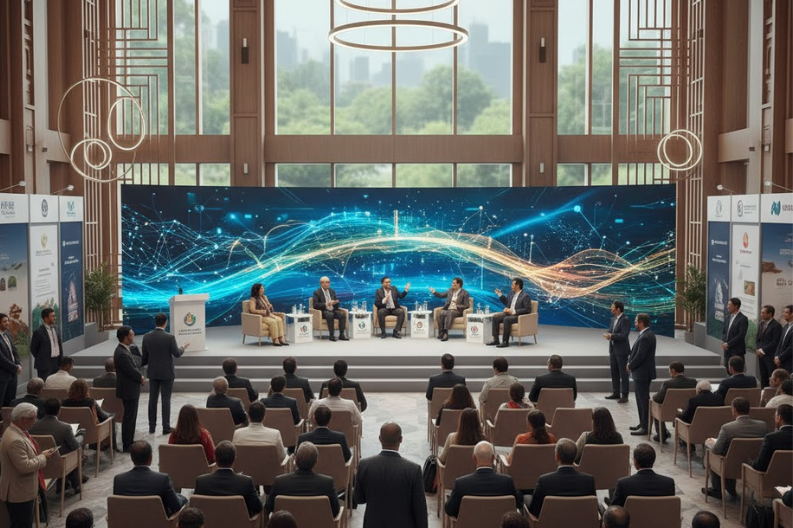The Charcha 2025 event on November 19, 2025, brought together more than 2,000 stakeholders in New Delhi to discuss how India can create better jobs and ensure fair growth. The three-day gathering at the India Habitat Centre included leaders from government, business, and social sectors. They worked together to explore stronger ways of building a more developed India by 2047.
This edition of Charcha featured support from 29 major organizations. These included the Ministry of Social Justice & Empowerment, Atal Innovation Mission, LinkedIn, Meta, and many others. Because of this large partnership, the event created a strong space for cross-sector learning and collaboration.
During the sessions, India’s G20 Sherpa and former NITI Aayog CEO, Amitabh Kant, shared that India must focus on improving health and nutrition if it wants a truly employable population. He added that smart urban growth could push India toward a 30-trillion-dollar economy and generate millions of new jobs.
In addition, economic advisor Dr. Shamika Ravi discussed the urgent gap between education and skills. She said businesses are able to raise capital, but they struggle to find trained workers. According to her, this shortage of skilled manpower is slowing down India’s economic momentum.
Charcha 2025 included over 50 hours of live discussions and more than 200 speakers. They focused on seven main themes:
• Technology, Data & Impact
• Agriculture & Rural Livelihoods
• Policy & Capacity Building
• Skills & Livelihoods
• Inclusion, Empowerment & Sustainability
• Capital & Philanthropy
• Social Entrepreneurship & SMEs
Jerold Pereira, Managing Director of the *spark forum, highlighted the event’s purpose. He said they aim to build the “connective tissue” between governments, markets, and civil society. Because of these links, more communities can get better access to growth opportunities.
Mr. Amit Yadav from the Ministry of Social Justice & Empowerment emphasized the need to protect vulnerable groups. He reminded everyone that the true measure of a society is how it treats its most at-risk people.
LinkedIn India’s Country Manager, Kumaresh Pattabiraman, stressed the importance of supporting smaller cities. He explained that stronger job opportunities in tier-two and tier-three cities will shape the success of Viksit Bharat by 2047.
Rukmini Banerji from Pratham Education Foundation shared a practical message. She said that although changing the whole nation is difficult, improving one’s own village is possible. She encouraged local committees and community groups to take small but meaningful steps toward improvement.
Technology remained a major part of the discussions. Experts from Meta, NASSCOM Foundation, and Atal Innovation Mission explained how AI can support, not harm, livelihoods. They showed examples of digital tools helping young people in rural India learn new skills and access jobs.
Dr. Kalika Bali from Microsoft Research Labs India raised concerns about women in low-skill jobs. She explained that many of these roles are at risk of being replaced by technology. However, she also highlighted roles like ASHA health workers, which cannot be replaced because they require human care and connection.
Panelists discussing agriculture focused on building resilient rural systems. They talked about regenerative farming, strong local markets, and the need to protect farmers from climate challenges. These discussions showed how rural livelihoods must adapt to survive future risks.
The main message from the event was clear: India needs strong teamwork to build a fair and stable future. Government agencies must create supportive policies, businesses must innovate, and civil society must help bridge gaps. Only then can growth reach every corner of the country.
Since its launch in 2020, Charcha has become a major platform for development-focused conversations. It has connected over 1,000 leaders and reached more than 1.5 million people across India. As a result, the 2025 edition expanded this mission by pushing for resilient livelihoods and inclusive development.
The Spark Forum, which organized the event, continues to create spaces where leaders come together to share ideas. Their goal is to help communities rise out of poverty and to make sure every voice is included in India’s development journey.
In conclusion, Charcha 2025 proved to be more than a conference. It became a collaborative effort to shape a stronger, fairer, and more skilled India for the years ahead.



